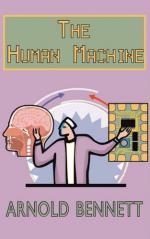The conviction that great effort has been made and no progress achieved is the chief of the dangers that affront the beginner in machine-tending. It is, I will assert positively, in every case a conviction unjustified by the facts, and usually it is the mere result of reaction after fatigue, encouraged by the instinct for laziness. I do not think it will survive an impartial examination; but I know that a man, in order to find an excuse for abandoning further effort, is capable of convincing himself that past effort has yielded no fruit at all. So curious is the human machine. I beg every student of himself to consider this remark with all the intellectual honesty at his disposal. It is a grave warning.
When the machine-tender observes that he is frequently changing his point of view; when he notices that what he regarded as the kernel of the difficulty yesterday has sunk to a triviality to-day, being replaced by a fresh phenomenon; when he arises one morning and by means of a new, unexpected glimpse into the recesses of the machine perceives that hitherto he has been quite wrong and must begin again; when he wonders how on earth he could have been so blind and so stupid as not to see what now he sees; when the new vision is veiled by new disappointments and narrowed by continual reservations; when he is overwhelmed by the complexity of his undertaking—then let him unhearten himself, for he is succeeding. The history of success in any art—and machine-tending is an art—is a history of recommencements, of the dispersal and reforming of doubts, of an ever-increasing conception of the extent of the territory unconquered, and an ever-decreasing conception of the extent of the territory conquered.




